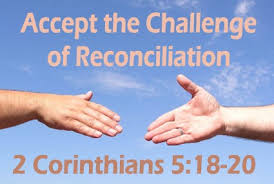
Now all these things are from God, who reconciled us to Himself through Christ and gave us the ministry of reconciliation.
–2 Corinthians 5:18
Some people advise against forgiving someone who won’t say “I’m sorry” because they believe that forgiving an unrepentant person invites further abuse. If a wife forgives her philandering husband of his affairs, and he never shows any remorse or repentance, then isn’t she giving him permission to continue the affairs? If a boss forgives an employee for embezzling from the company, doesn’t he open himself up to the possibility of being stolen from again?
That’s what some people would say. Imagine that you have a teenager who breaks curfew at home. You confront him about it, but he is absolutely unmoved and unwilling to admit that what he did was wrong. Could you forgive him without expecting him to stop abusing the curfew?
I once read about a professor from a Christian university who ran into one of his students while traveling. He discovered that the student was having an affair with another woman while his wife was at home. The professor reminded the student that God would certainly discipline him for his sinful disobedience. The student responded nonchalantly, “I expect God to forgive me. That’s His job.” That’s what a lot of people think. They think, “I can do whatever I want because God will forgive me. That’s His responsibility.” That illustrates the danger of forgiving somebody who shows absolutely no remorse.
Can we really forgive an unrepentant person? Doesn’t that encourage further abuse? Such an objection doesn’t take into consideration that there is a difference between forgiveness and reconciliation.
You can forgive somebody without ever being reconciled to that person. You see, forgiveness is simply a way that we say, “I am surrendering my right to settle the score with you. I am leaving that to somebody else.” When we forgive somebody, we are giving up our right to hurt that person for hurting us. We are saying, “God, You or somebody else take care of it, but I’m not going to do it. I’m going to get on with my life.”
There is a difference between forgiveness and reconciliation. You can forgive somebody without ever hearing the words “I’m sorry.” But you can never be reconciled with somebody until you hear the words “I’m sorry.”
***
